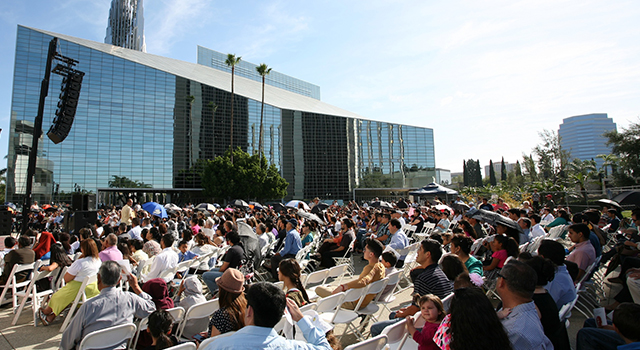There’s not enough rain. There’s not enough oil. There’re not enough jobs. There’s not enough room on the freeways. There’s not enough money. There’s not enough time. When we think there is not enough, panic can set in. What are we going to do? How will we survive without enough water, how will we get around if there is not enough gas, what is to become of our family if there is not enough money? Feelings of insecurity run very high. Uncertainty about the future is unsettling.
Shortages are certainly not new. In the Gospel story there is not enough food to feed the thousands that are gathered listening to Jesus (John 6:1-15). Lacking the amount of money it would take to buy food for the huge crowd, and seeing that the only food in sight is five barley loaves and two fish, the situation looks dire. It is at this moment that Jesus turns the situation of “not enough” into a scene of more than enough. He sees in the five loaves and two fish a huge feast and says thank you to his Father. Out of that gratitude comes plenty of food for all, in fact there is more than enough as twelve baskets of leftovers are collected.
The not enough food that became more than enough was a prelude to Jesus’ action of filling all those who believe in him with the only food that can truly fill up our lives, the Bread of Life of the Eucharist. It is this food that strengthens us to name and to take action on the true shortages in our world. Shortages like food, clothing, shelter, education, health care and gainful employment for millions. Shortage of space for refugees fleeing from war and violence in their own countries. Shortage of tolerance for people from different countries, cultures and religions. These and so many more shortages can tempt us to think that we will never have enough of what is needed to address them. It can look as grim as two tiny fish and five little loaves to feed thousands.
On the hillside that day, not enough became more than enough. Living from a place of gratitude and nourished by the Eucharist, our frantic cries of not enough can become hope filled hungers for a world of justice and peace. Perhaps one day there just may be more than enough.
